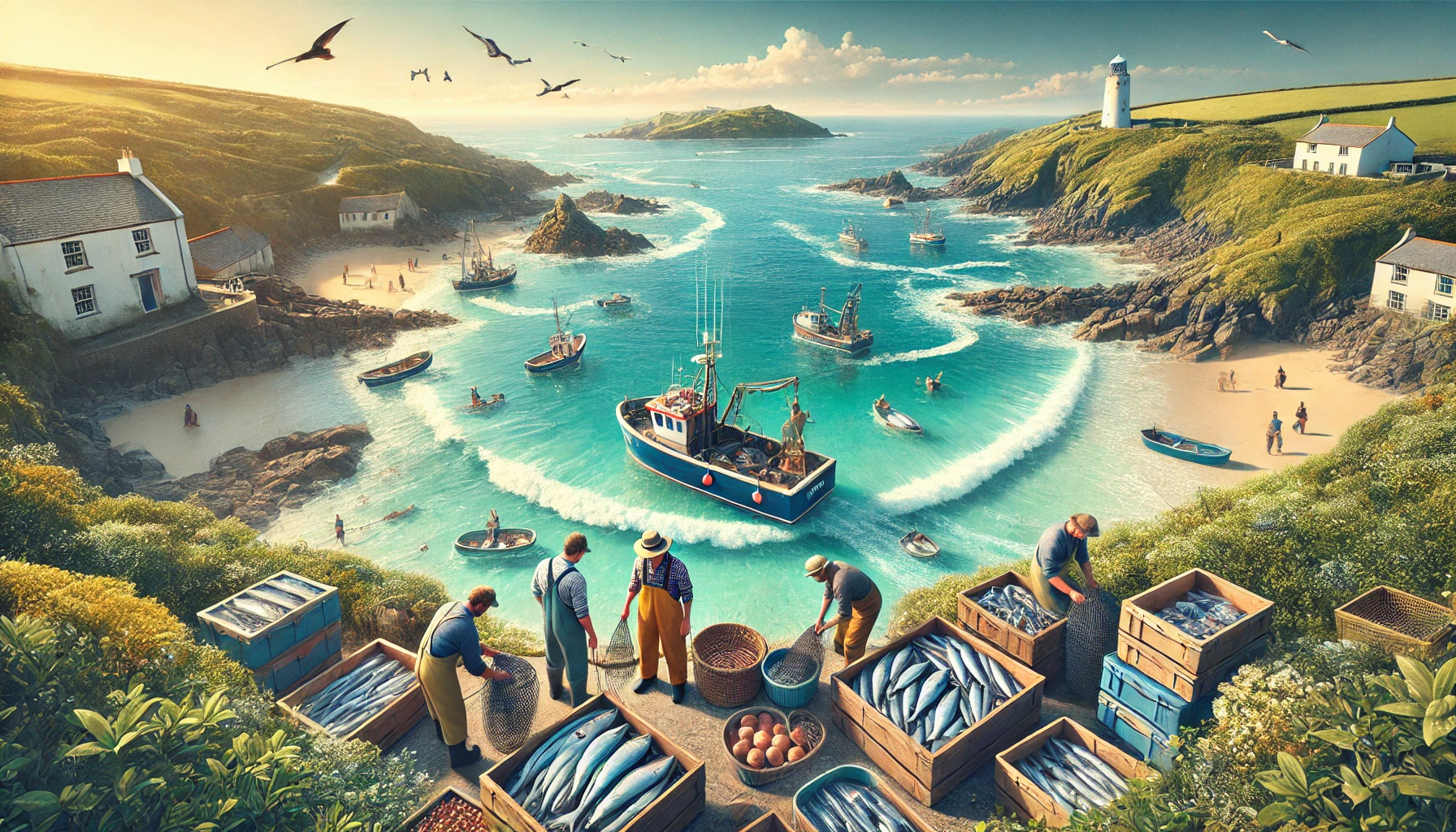Cornwall’s fishing industry is not just a vital part of its economy but also a key player in the global push for sustainable seafood. By implementing responsible fishing practices, Cornwall is committed to protecting marine ecosystems and ensuring the longevity of its fishing traditions. This article delves into Cornwall’s initiatives in promoting sustainable seafood, the benefits of these practices, and how consumers can contribute to these efforts.
Table of Contents
The Importance of Sustainable Fishing
Sustainable fishing is crucial for maintaining healthy marine ecosystems and ensuring that fish populations remain abundant for future generations. Overfishing and destructive fishing practices can lead to the depletion of fish stocks, habitat destruction, and the collapse of local fisheries. By adopting sustainable practices, Cornwall aims to balance the needs of the environment, the economy, and the community.
Cornwall’s Key Initiatives
The Cornwall Good Seafood Guide
The Cornwall Good Seafood Guide is a comprehensive resource that helps consumers make informed choices about the seafood they buy. It provides information on which species are sustainably sourced and highlights local fish that are abundant and responsibly caught.
Local Fisheries and Certifications
Many fisheries in Cornwall are certified by organizations such as the Marine Stewardship Council (MSC), which ensures that they adhere to strict sustainability standards. These certifications provide assurance that the seafood is sourced in an environmentally responsible manner.
Marine Conservation Zones
Cornwall has established several Marine Conservation Zones (MCZs) to protect vulnerable marine habitats and species. These zones restrict certain activities, such as bottom trawling, to minimize damage to the seabed and help marine life recover.
Benefits of Sustainable Fishing
Environmental Protection
Sustainable fishing practices help preserve marine biodiversity and protect ecosystems from harmful impacts. By ensuring that fishing methods do not harm the environment, Cornwall contributes to the health of its coastal waters.
Economic Stability
Responsible fishing supports the local economy by ensuring that fish stocks remain healthy and productive. This stability benefits fishermen, seafood processors, and related industries, providing long-term economic security.
Community Wellbeing
Sustainable fishing practices contribute to the wellbeing of local communities by supporting jobs, promoting healthy eating, and preserving cultural heritage. It also ensures that future generations can continue to enjoy the benefits of Cornwall’s rich marine resources.
How Consumers Can Support Sustainable Seafood
Choosing Certified Products
Look for certifications such as the MSC label when buying seafood. These labels indicate that the product comes from a sustainable source.
Supporting Local Fishermen
Buying directly from local fishermen or markets helps support the community and ensures that you are getting fresh, sustainably sourced seafood.
Reducing Seafood Waste
Being mindful of portion sizes and properly storing seafood can help reduce waste. Using leftovers creatively can also make the most of your seafood purchases.
Personal Insights and Experiences
Experiencing Cornwall’s commitment to sustainable seafood firsthand has been inspiring. Visiting local markets and talking to fishermen about their sustainable practices has deepened my appreciation for the region’s efforts. Enjoying a meal of fresh, responsibly caught seafood is not only delicious but also supports a vital cause.
FAQ
Q: What is the Cornwall Good Seafood Guide?
A: The Cornwall Good Seafood Guide provides information on sustainably sourced seafood, helping consumers make environmentally friendly choices.
Q: How can I tell if seafood is sustainably sourced?
A: Look for certifications such as the MSC label, which indicate that the seafood meets strict sustainability standards.
Q: What are Marine Conservation Zones?
A: Marine Conservation Zones are protected areas that restrict certain activities to preserve marine habitats and species.
Conclusion
Cornwall’s efforts in promoting sustainable seafood are vital for protecting marine ecosystems and ensuring the future of its fishing industry. By supporting sustainable practices and making informed choices, consumers can contribute to these important initiatives. Together, we can enjoy the bounty of the sea while safeguarding it for generations to come.
References/Resources
- Cornwall Good Seafood Guide: www.cornwallgoodseafoodguide.org.uk
- Marine Stewardship Council: www.msc.org
- Visit Cornwall: www.visitcornwall.com



